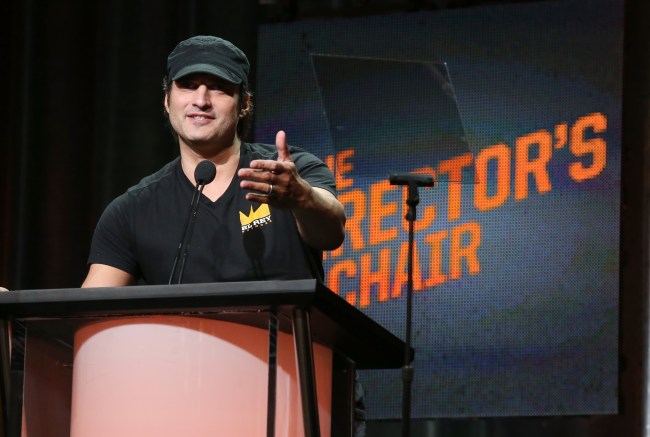
Robert Rodriguez had a plan. After dabbling in short films for almost a decade, he wanted to teach himself the intricacies of creating a feature-length film. The plan was to shoot a film for around $7,000 and to release it into the Spanish-language market, where it would sit on the bottom shelf of a video store never to be seen by American audiences, the biggest base of filmgoers on the planet. This way, if the film was as crappy as he expected, no one would ever connect him to the movie during his latter days as a premier filmmaker. Things did not go according to plan.
On a recent episode of Marc Maron’s WTF podcast, Rodriguez joined Maron in his garage to talk about his early days as a maverick filmmaker, and some very interesting items were broached. For starters, Rodriguez funded his first feature-length project, El Mariachi, by donating himself to studies for pharmaceuticals. He actually wrote El Mariachi during his weekends in the labs as he tested out various medicines. People who follow Rodriguez’ career might already know that and that El Mariachi was made so the director could learn everything about the filmmaking biz, but they might not know that he never intended for the film to be screened for American audiences.
“I didn’t want anyone to see it. It was a practice film. My short films were winning enough awards that I thought, ‘Wow. Someone’s going to scout a festival, see my short film, hire me to make a feature, and I don’t know how to make a feature.’ So I thought, let me go make one in Spanish for the Spanish video market…no one will see it…I’m going to make a couple of these for no money. First film (El Mariachi) goes out, Columbia Pictures gets it as a demo of my work; my agent sent it to them. And they ask, ‘This is great what do you want to do?’ “
Rodriguez was only 22 at the time and he told Columbia that he really didn’t have any other stories in the pipeline; things were happening fast. Columbia came back and offered to remake the film with Antonio Banderas as the lead, but first they wanted to test El Mariachi with audiences to see if they liked the narrative. The film was screened for a Hispanic audience who raved about the picture. The response was so great that Columbia decided to take the film on the festival route.
“I told them, ‘Don’t show this movie,'” Rodriguez said to Columbia. “I can do so much better. The only reason it was that inexpensive is because I thought no one was going to see it….They said, ‘No, you don’t know what you have here. It’s very special.'”
The film hit the Telluride Festival, and then the Toronto International Film Festival (TIFF) to rave reviews, before a representative for the Sundance film festival offered to screen it at the legendary event. El Mariachi ended up winning the Audience Award at Sundance in 1993. The film helped set off a wave of independent, shoestring filmmaking in the U.S. the likes of which has not ceased even today. Double-R continues to write and direct his films his way, which is refreshing in a sea of previously-licensed cinematic properties.
(Rodriguez also spoke to Maron about the short film that he made right before he made El Mariachi which is conveniently placed for you below to gander at and be inspired to go out and carve your own filmmaking path.)
(Via WTF Podcast)






